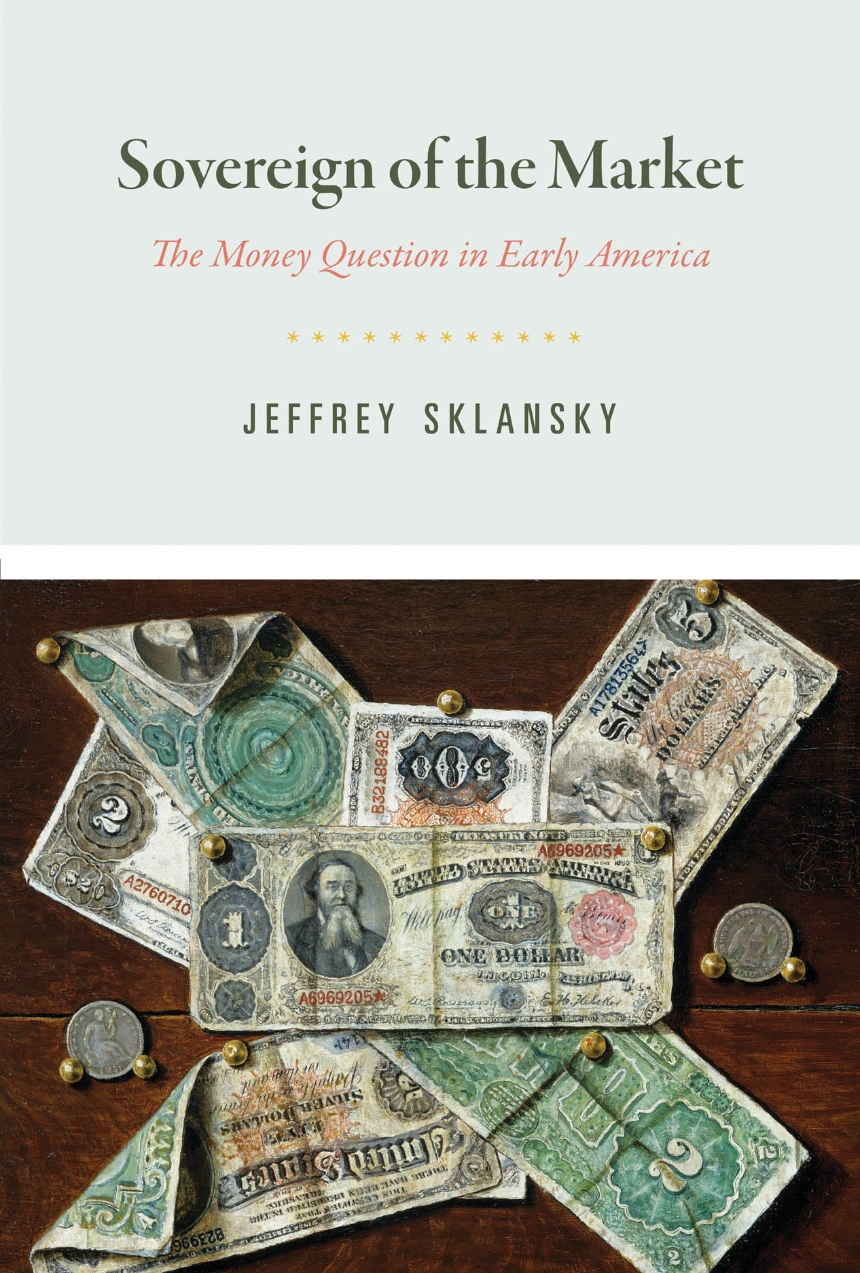Sovereign of the Market
The Money Question in Early America
What should serve as money, who should control its creation and circulation, and according to what rules? For more than two hundred years, the “money question” shaped American social thought, becoming a central subject of political debate and class conflict. Sovereign of the Market reveals how and why this happened.
Jeffrey Sklansky’s wide-ranging study comprises three chronological parts devoted to major episodes in the career of the money question. First, the fight over the innovation of paper money in colonial New England. Second, the battle over the development of commercial banking in the new United States. And third, the struggle over the national banking system and the international gold standard in the late nineteenth century. Each section explores a broader problem of power that framed each conflict in successive phases of capitalist development: circulation, representation, and association. The three parts also encompass intellectual biographies of opposing reformers for each period, shedding new light on the connections between economic thought and other aspects of early American culture. The result is a fascinating, insightful, and deeply considered contribution to the history of capitalism.
Jeffrey Sklansky’s wide-ranging study comprises three chronological parts devoted to major episodes in the career of the money question. First, the fight over the innovation of paper money in colonial New England. Second, the battle over the development of commercial banking in the new United States. And third, the struggle over the national banking system and the international gold standard in the late nineteenth century. Each section explores a broader problem of power that framed each conflict in successive phases of capitalist development: circulation, representation, and association. The three parts also encompass intellectual biographies of opposing reformers for each period, shedding new light on the connections between economic thought and other aspects of early American culture. The result is a fascinating, insightful, and deeply considered contribution to the history of capitalism.
336 pages | 12 halftones | 6 x 9 | © 2017
American Beginnings, 1500-1900
Economics and Business: Economics--History
History: American History, History of Ideas
Reviews
Table of Contents
Introduction: The Elusive Sovereign
Part I Paper Money and the Problem of Circulation in the Colonial Era
1 John Wise and the Natural Law of Commerce
2 William Douglass and the Natural History of Credit
Part II Commercial Banking and the Problem of Representation in the Jacksonian Era
3 William Leggett and the Melodrama of the Market
4 Nicholas Biddle and the Beauty of Banking
Part III Big Business and the Problem of Association in the Gilded Age and Progressive Era
5 Charles Macune and the Currency of Cooperation
6 Charles Conant and the Fund of Trust
Conclusion: The Magician’s Glass
Acknowledgments
Notes
Index
Part I Paper Money and the Problem of Circulation in the Colonial Era
1 John Wise and the Natural Law of Commerce
2 William Douglass and the Natural History of Credit
Part II Commercial Banking and the Problem of Representation in the Jacksonian Era
3 William Leggett and the Melodrama of the Market
4 Nicholas Biddle and the Beauty of Banking
Part III Big Business and the Problem of Association in the Gilded Age and Progressive Era
5 Charles Macune and the Currency of Cooperation
6 Charles Conant and the Fund of Trust
Conclusion: The Magician’s Glass
Acknowledgments
Notes
Index
Awards
The Society for U.S. Intellectual History: S-USIH Annual Book Award
Honorable Mention
